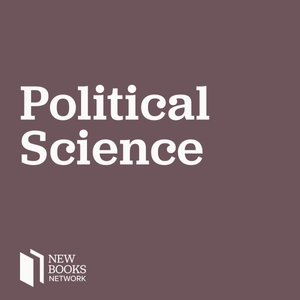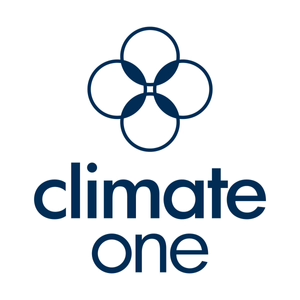
Michael Munger, "The Sharing Economy: Its Pitfalls and Promises" (Institute of Economic Affairs, 2021)
06/15/22 • 55 min
Transactions have always taken place. For hundreds of years that 'place' was a market or, more recently, a shopping mall. But in the past two decades these physical locations have increasingly been replaced by their virtual counterparts - online platforms. In this book Michael Munger explains how these platforms act as matchmakers or middlemen, a role traders have adopted since the very first exchanges thousands of years ago. The difference today is that the matchmakers often play no direct part in buying or selling anything - they just help buyers and sellers find each other. Their major contribution has been to reduce the costs of organizing and completing purchases, rentals or exchanges. The Sharing Economy: Its Pitfalls and Promises (Institute of Economic Affairs, 2021) contends that the key role of online platforms is to create reductions in transaction costs and it highlights the importance of three 'Ts' - triangulation, transfer and trust - in bringing down those costs.
Professor Munger trained as an economist at Washington University in St. Louis under Nobel Prize-winning economic historian Douglass North. He has published prolifically across disciplines in the areas of political economy and public choice, and is now a professor of political science at Duke University, with secondary appointments in economics and public policy.
Professor Munger is also an avowed libertarian, and has stood for office as a candidate of the Libertarian Party. In our interview, he explains how the emergence of the platform economy creates concentrations of economic power that are just as concerning to him as concentrations of political power. He also explains how thinking through the many changes and disruptions in our working lives that will result from the platform economy has led him to the view that Universal Basic Income and single-payer healthcare are necessary to creating the kind of free and prosperous society that he and other libertarians want.
Host Peter Lorentzen is an Associate Professor in the Department of Economics at the University of San Francisco, where he leads a new Master's program in Applied Economics that trains students in the skills of data analytics needed to understand, succeed in, or make positive changes to the evolving digital platform economy.
Learn more about your ad choices. Visit megaphone.fm/adchoices
Support our show by becoming a premium member! https://newbooksnetwork.supportingcast.fm/economics
Transactions have always taken place. For hundreds of years that 'place' was a market or, more recently, a shopping mall. But in the past two decades these physical locations have increasingly been replaced by their virtual counterparts - online platforms. In this book Michael Munger explains how these platforms act as matchmakers or middlemen, a role traders have adopted since the very first exchanges thousands of years ago. The difference today is that the matchmakers often play no direct part in buying or selling anything - they just help buyers and sellers find each other. Their major contribution has been to reduce the costs of organizing and completing purchases, rentals or exchanges. The Sharing Economy: Its Pitfalls and Promises (Institute of Economic Affairs, 2021) contends that the key role of online platforms is to create reductions in transaction costs and it highlights the importance of three 'Ts' - triangulation, transfer and trust - in bringing down those costs.
Professor Munger trained as an economist at Washington University in St. Louis under Nobel Prize-winning economic historian Douglass North. He has published prolifically across disciplines in the areas of political economy and public choice, and is now a professor of political science at Duke University, with secondary appointments in economics and public policy.
Professor Munger is also an avowed libertarian, and has stood for office as a candidate of the Libertarian Party. In our interview, he explains how the emergence of the platform economy creates concentrations of economic power that are just as concerning to him as concentrations of political power. He also explains how thinking through the many changes and disruptions in our working lives that will result from the platform economy has led him to the view that Universal Basic Income and single-payer healthcare are necessary to creating the kind of free and prosperous society that he and other libertarians want.
Host Peter Lorentzen is an Associate Professor in the Department of Economics at the University of San Francisco, where he leads a new Master's program in Applied Economics that trains students in the skills of data analytics needed to understand, succeed in, or make positive changes to the evolving digital platform economy.
Learn more about your ad choices. Visit megaphone.fm/adchoices
Support our show by becoming a premium member! https://newbooksnetwork.supportingcast.fm/economics
Previous Episode

Deindustrialization
Gabriel Winant talks with Kim about the decline of the industrial working class and the rise of the health care industry.
Gabriel is an assistant professor of History at the University of Chicago. His book, The Next Shift: The Fall of Industry and the Rise of Health Care in Rust Belt America, is recently out from Harvard University Press. You can read his recent article on the subject in The New York Times.
The Next Shift focuses on the working class in the American context and Pittsburgh in particular. In the full version of our conversation, Gabriel recommended Aaron Benanav’s book Automation and the Future of Work (Verso 2020), for an argument about the larger global economic structures of deindustrialization. He also talks a bit about James Boggs, as someone who was well positioned to notice the effects of deindustrialization. We found this article about Boggs worth reading.
The image for this episode is a photograph of the abandoned Detroit Public Schools Book Depository, taken by Thomas Hawk on 13 June 2010. The image is posted of Flickr under a creative commons attribution non-commercial license. Lauren Berlant describes gives this photograph as a bad image of neoliberalism, which allows our social theory to derive “its urgency and its reparative imaginary from spaces of catastrophe and risk where the exemplum represents structural failure” (“The Commons: Infrastructures for Troubling Times” Society and Space 34 no. 3 (2016) p.395). But I like it. Saronik modified the original image.
Music used in promotional material: ‘Shadow of a Coal Mine’ by Linda Draper
Learn more about your ad choices. Visit megaphone.fm/adchoices
Support our show by becoming a premium member! https://newbooksnetwork.supportingcast.fm/economics
Next Episode

Economics
Matt Seybold talks about the development of economics as a discourse inside and outside the academy, its success in making itself felt to be the only discourse that can talk about resource management and distribution, and its many complicities with capitalism. The conversation ranges from the origins of economics in the concept of household management, to the possibilities of a utopian economics in the novels of Kim Stanley Robinson.
Matt Seybold is Associate Professor of American Literature & Mark Twain Studies at Elmira College, where he is also resident scholar at the Center For Mark Twain Studies, editor of MarkTwainStudies.org, and host of The American Vandal Podcast. He is co-editor, with Michelle Chihara, of The Routledge Companion to Literature & Economics (2018) and, with Gordon Hutner, of a 2019 special issue of American Literary History on “Economics & American Literary Studies in the New Gilded Age.” Other recent publications can be found in Aeon, American Studies, Henry James Review, Leviathan, Los Angeles Review of Books, and Mark Twain Annual.
Image: “New York Harbor from Brooklyn Bridge” The New York Public Library Digital Collections. 1850 – 1945.
Music used in promotional material: ‘Technical Difficulty Lullaby (Pigeon Song)’ by Monplaisir
Learn more about your ad choices. Visit megaphone.fm/adchoices
Support our show by becoming a premium member! https://newbooksnetwork.supportingcast.fm/economics
If you like this episode you’ll love
Episode Comments
Generate a badge
Get a badge for your website that links back to this episode
<a href="https://goodpods.com/podcasts/new-books-in-economics-11015/michael-munger-the-sharing-economy-its-pitfalls-and-promises-institute-21526863"> <img src="https://storage.googleapis.com/goodpods-images-bucket/badges/generic-badge-1.svg" alt="listen to michael munger, "the sharing economy: its pitfalls and promises" (institute of economic affairs, 2021) on goodpods" style="width: 225px" /> </a>
Copy




